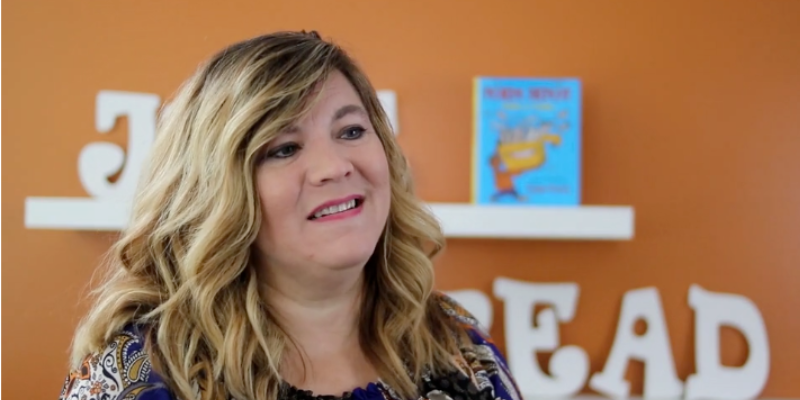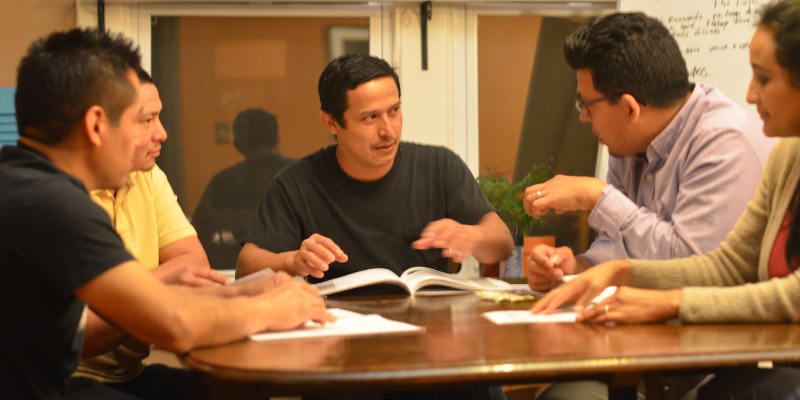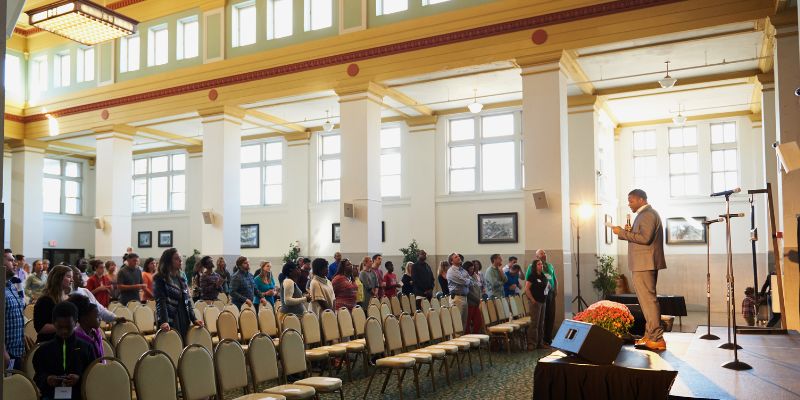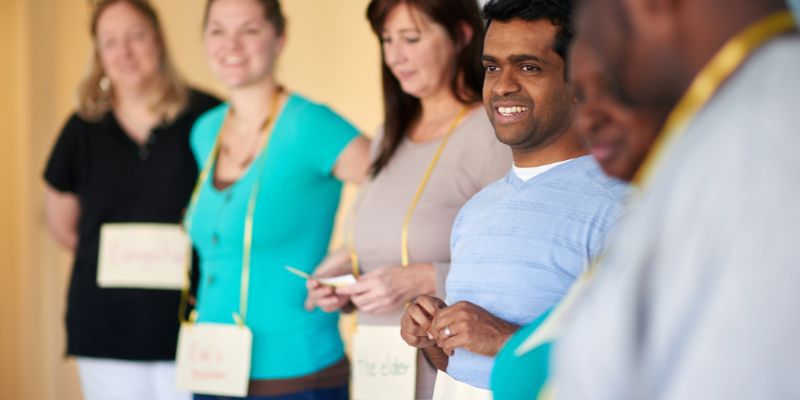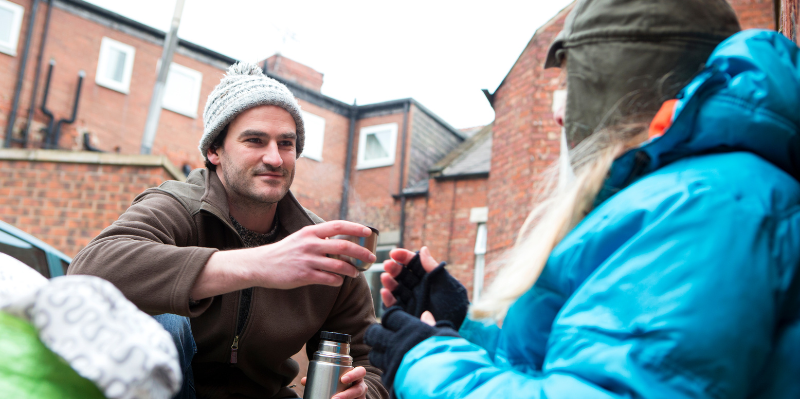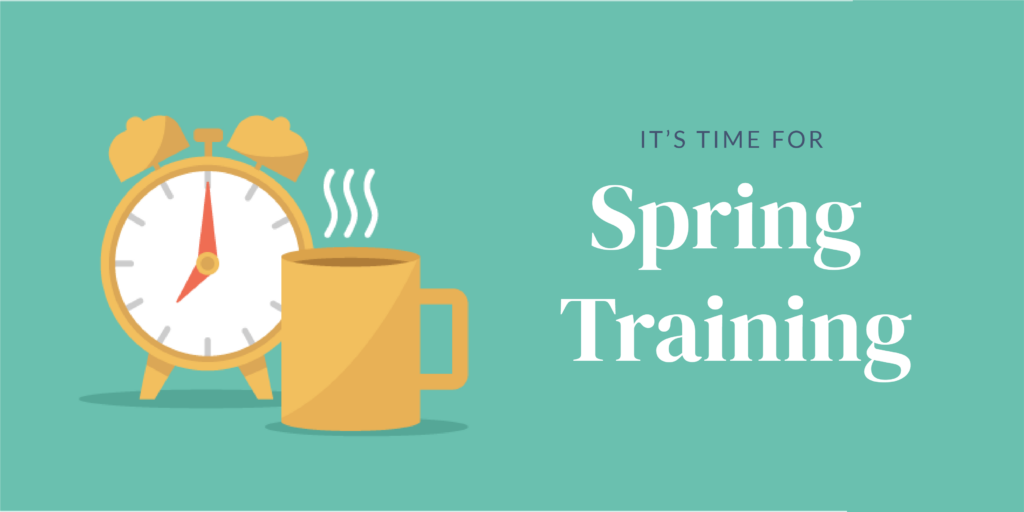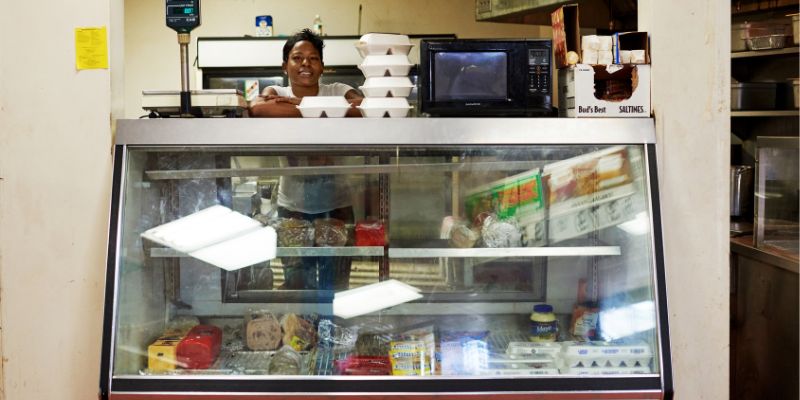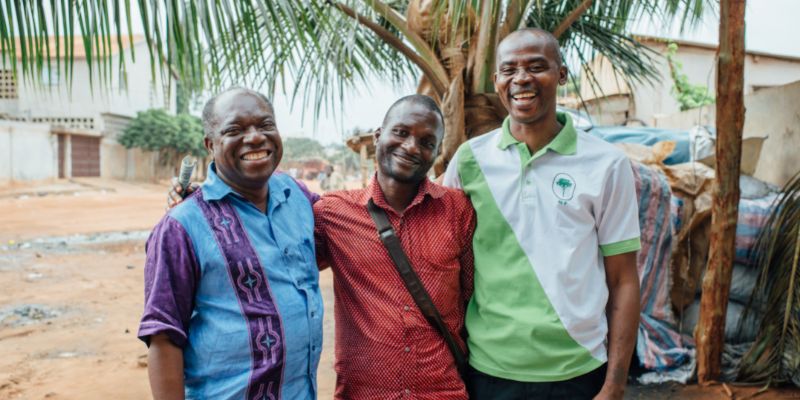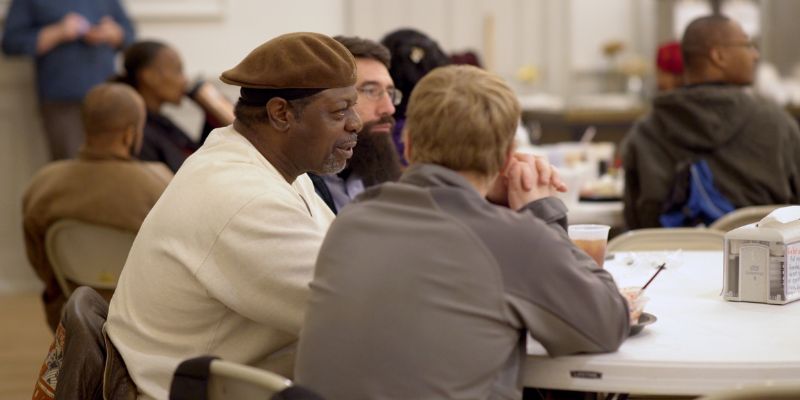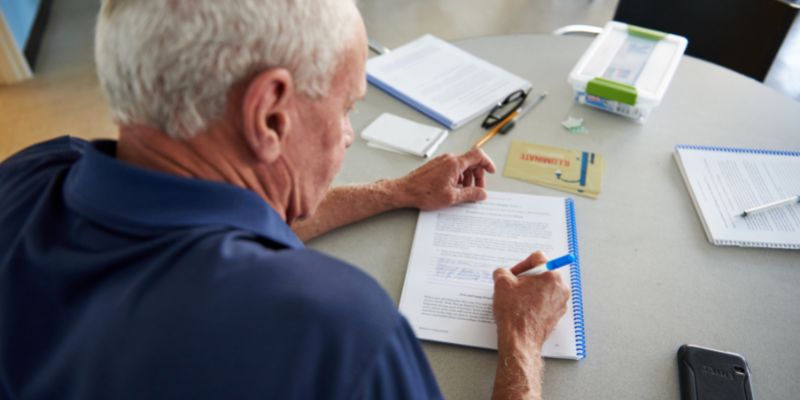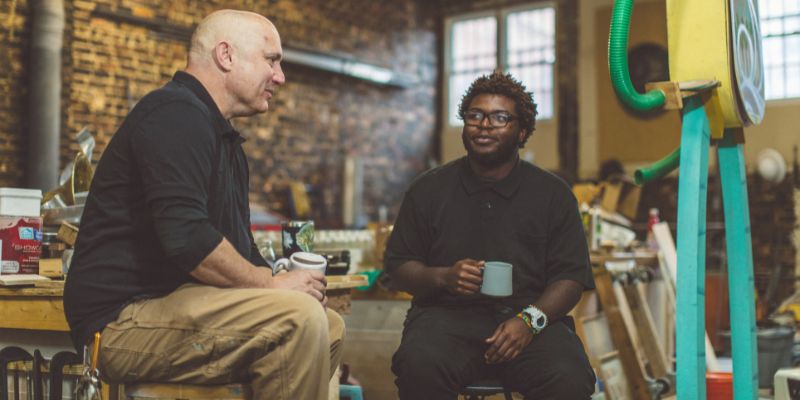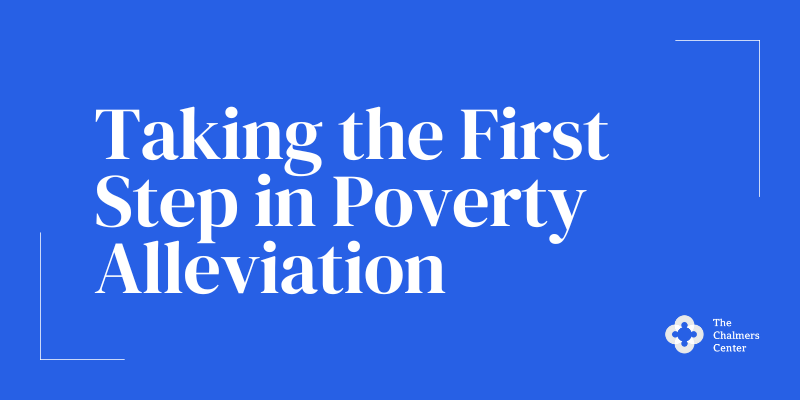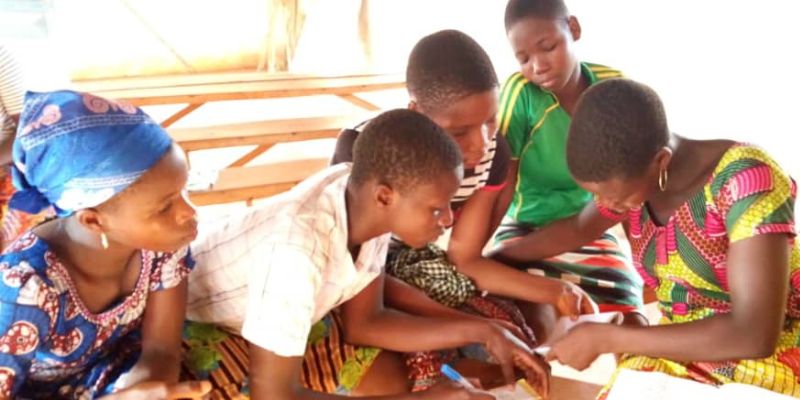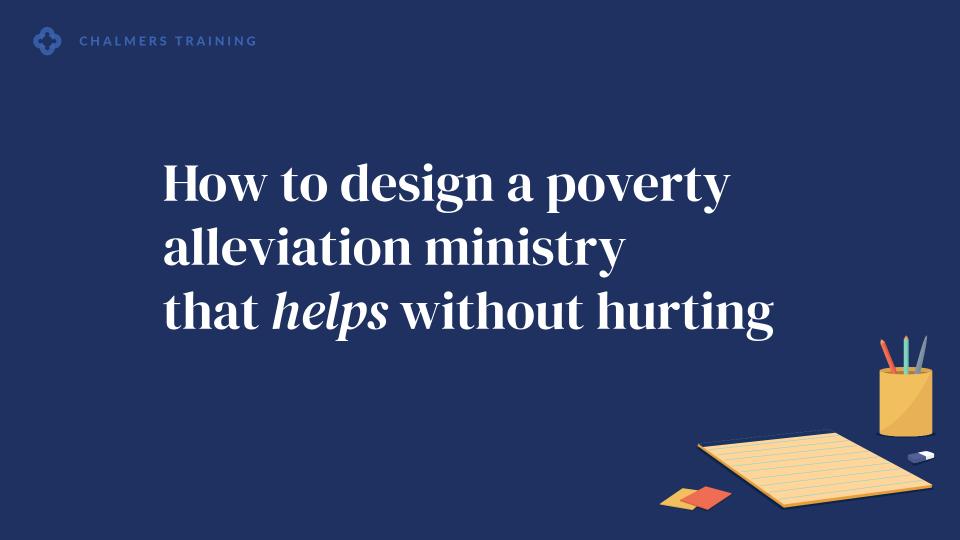Search
Categories
Tags
Posts in “Helping Without Hurting”
Going Beyond the Four Walls of the Church: The Impact of Community Ministry
Local churches often make a significant mistake when it comes to helping those in poverty. They sometimes create divisions in their efforts that aren’t really necessary, according to Scripture. When we split up the act of spreading the message of God’s transformative power (evangelism) and the act of serving others or providing practical life skills (service or technical programming), we give the wrong impression that the world is fragmented. We make it seem like God’s work is separate from helping people in need.
Helping People Experience Financial Stability
As the Director of Programs for Restoration House in the Knoxville area, Lori Haskell has years of experience working with single moms who find themselves in difficult circumstances, especially when it comes to finances. They want to be financially self-sufficient but often lack the training and support they need to get there.
Mutual Transformation in God’s Family
People are not projects. Please listen to these words and take them to heart. All human beings are made in the image of the living God. This means we are never merely projects defined by our economic statuses, our material possessions, or our vocations, graded on some scale of how well we are doing at life. Rather, we are equal in worth and in dignity, and this is true across race, nationality, age, culture, and gender, etc. In the same way, the church is full of beautiful, broken people gathering together to embrace Jesus’ love and to extend benevolence to all people. Doing benevolence well is an act of love in itself.
Mapping Your Church’s Assets
Local churches that have been engaged with a biblical framework for addressing poverty or have used various tools and trainings from the Chalmers Center know that one of the biggest keys in a healthy ministry is taking an asset-based, rather than a needs-based approach. An asset-based approach helps us see that all people, both those who are materially poor and those with material wealth, can contribute to poverty alleviation efforts.
How to Build Developmental Classes that Actually Work
If we’re going to pursue relational poverty alleviation ministry that aims toward long-term development, one of the main outcomes we’re looking for from ministry participants is learning. We want to see the people we’re walking with learn new skills, rediscover their dignity, and grow in their capacity to navigate the complexities of life.
Building Empathy Across Socioeconomic Lines
God made the world out of love, and redeems us through His love expressed in Jesus’ sacrifice for our sins. He made us to enjoy loving relationships with Him, with ourselves, with others, and with the rest of His creation. Because of this, our work to walk with people in material poverty needs to be relational and participatory in nature, working together with people out of love, not merely doing things for them. True relationships are a two-way street. We give and receive.
Training to Help Your Church or Nonprofit Help without Hurting
During the past 22 years, in addition to publishing books about poverty alleviation, Chalmers has been creating training for use in both the U.S. and the Majority World (of Africa, Asia, and Latin America). These field-tested programs are built on God’s story of change and community development best practices to help you put a biblical framework for addressing poverty into practice.
The Complexities of Unemployment and Underemployment
What happens when someone wants work but can’t find it? What happens when “the one who has been stealing” wants to do “something useful with their own hands, that they may have something to share with those in need” (Eph. 4:28), but can’t get a job? What happens when they find work, but it is so temporary, unsteady, or poorly paid that they can’t even get off government assistance, much less have something left over to share?
Why Being “Pro Work” Is An Economic Development Best Practice
But how does work, work, when it comes to poverty alleviation? What makes helping people find and keep good jobs such a crucial piece of long-term economic development efforts?
Let’s start with a question: Why do you work? What difference does work make in your life? In your family? What would you do without work?
The Ministry of Writing Checks
There’s an idea out there that giving money to a poverty alleviation ministry is a cop out to being personally engaged in the ministry. But those directly involved in on-the-ground development ministries have a different view—that the most relational thing many people can do to help end poverty is actually writing checks to organizations that do effective, asset based, participatory development.
Now that You’re Home: Building on a Short-Term Mission Trip
What we do when we return home from a short-term mission trip is an important part of healthy short-term ministry.
Putting Policy into Practice: A Case Study
The past couple of weeks, we’ve shared some of the keys to starting an effective benevolence ministry through your church or ministry. Often, however, the process of creating or redeveloping a benevolence ministry isn’t linear.
Building a Transformational Benevolence Ministry
One of the most important factors in a sustainable ministry model is creating a system for how you handle new requests. We call this an intake process. Having a plan that everyone follows takes the stress out of benevolence, for deacons or staff, for volunteers, and for applicants.
A Framework for Effective Benevolence
One of the most important questions that we should ask as we engage in any kind of poverty alleviation work is “What is poverty?” Because the way that we diagnose the problem determines the solutions that we used to alleviate the problem.
Equipping Faithful Volunteers
If you’re involved in outreach or mercy ministry, you might wonder how to go about finding, equipping, encouraging and retaining volunteers to assist in this long term ministry.
Taking the First Step in Poverty Alleviation
As followers of Jesus, when we see material poverty in the world around us, our first instinct is often to do something about it. But where should we start? What’s the first step in poverty alleviation?
Designing Innovative Solutions to Problems
Have you ever been working on solving a complex problem and felt stuck? You knew there had to be a way forward but you just couldn’t see it? That’s how designing a poverty alleviation ministry can feel. Take the issue of food insecurity as an example. Most people are familiar with a “soup kitchen” model…
Designing Ministries That Help without Hurting
Since publishing the book, When Helping Hurts in 2009, the Chalmers Center has received countless questions from people who want to know how to create a ministry that helps without hurting.



